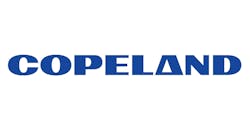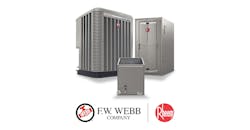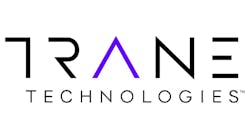The biggest question I get as an accountant is, "How can I pay less in taxes?." While there are many options, many of those options result in spending more money. While nothing is wrong with that, the point of a business is to grow and invest in your future, even if your starting goal is to bring in money to help pay your current bills. So, if we are trying to invest in your future, spending more money isn't the best route as a long-term solution, so how else can we save on taxes? Quite simply, we change how your money is invested.
All a business is, is a type of investment. Like any other investment, moving funds or changing how funds are invested helps us to maximize our returns. You canTraditional IRA
The most common type of tax-deferred investment is a Traditional IRA. These allow you to set aside up to $6,000, $7,000 for those over 50, per year as tax-deferred income. So ultimately, a married couple could set aside up to $14,000 into an IRA and have a reduction in their income by that same number. However, you cannot withdraw this money until you reach age 59½ without a penalty being assessed of 10% of your withdrawal. Now understand there are several ways to avoid this penalty. However, when investing in a traditional IRA, you will likely leave the money in the IRA until you reach retirement age. Furthermore, remember that you want to invest in a Traditional IRA, not a ROTH IRA, as a ROTH is not tax deferred.
SEP IRA
If setting aside only $6000 is not enough for you, you may want to consider opening up a SEP IRA. SEP IRAs are explicitly designed for small business owners and self-employed individuals. They allow up to $61,000 to be invested in an account similar to a Traditional IRA, meaning it is all tax-deferred. However, while this number may seem enticing, it is limited by your compensation. You will only be able to set aside 25% of your income, which means you would have to make $244,000 to set aside the entire amount. The downside to a SEP IRA is that they are designed to be offered to all employees. As such, you will need to work with a financial advisor and accountant to ensure yours is appropriately set up to comply with regulations. Furthermore, this option is designed to be a cheaper alternative to offering 401K plans. Still, while a 401K plan can be borrowed against, SEP IRAs are not as easy to borrow against if you need to get to funds penalty free.
401K Plans
Likely the most widely known way to invest is through an employer-sponsored 401K plan. While a 401K has a higher limit than a Traditional IRA, $20,500 ($27,000 if you are over 50), it is still lower than a SEP IRA. However, like SEP and Traditional IRAs, early withdrawal before turning 59½ can result in a 10% tax penalty. So how is a 401K better, you may ask? Unlike every other option, you can borrow against the principle of a 401K account, providing working capital today with no penalties if you need to grow your business. Unfortunately, 401Ks have management fees and tend to result in higher costs to the company than any other option, which can be a deterrent as they are highly regulated. Furthermore, a 401K plan must be equal for all employees, so any matching would occur for all eligible employees. One caveat is when profit sharing exists, allowing profits to be shared based on several factors.
Start-ups & Real Estate
The final way, and likely the way to defer the most income, is not through traditional means of investing but instead investing in new business opportunities or real estate. Both options will likely have start-up costs and potentially several years of losses as that business gets off the ground. These costs and losses will help offset the profit you are bringing in through your current company and thus reduce taxable income. Unlike traditional methods, though, this is a short-term solution most times and will likely result in more profits in three to five years. Investing in real estate is another more long-term solution. The costs of interest and depreciation can be written off, potentially resulting in losses for the entirety of the ownership of the property. Unfortunately, these are the most complicated options for investing and require constant discussions with an accountant to properly maximize your savings and carry the highest amount of risk.
There are many ways to invest; these are only a few examples. Investing can be pivotal in helping to reduce tax liability but also in preparing you for retirement. As soon as you can start investing, you should. Due to compounding interest, the sooner the money is invested, the sooner you see returns. For example, I sat down and ran scenarios with a client the other day. I showed him how his investment of $22,000 a year could earn him over $50,000 in earned interest for his retirement in just five years. To think if he had 20 or 30 years instead. A long-term plan, an investment advisor, and an accountant can help you maximize your business's profits and allow you to leverage them to meet your goals.
James Griner is owner of Waterford Business Solutions, Greenville, SC, providers of accounting services for contracting businesses. www.waterfordbusinesssolutions.com; 864-351-0852.









